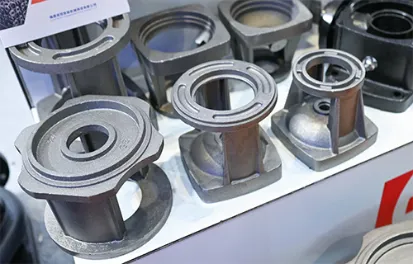Mobile:+86-311-808-126-83
Email:info@ydcastings.com
aluminium alloy for casting
Aluminium Alloys for Casting An Overview
Aluminium, a lightweight and versatile metal, has gained immense popularity in various industrial applications, particularly in casting. Its excellent properties, such as corrosion resistance, thermal and electrical conductivity, and low density, make it an ideal choice for manufacturing components across diverse sectors, including automotive, aerospace, and consumer goods. Within the realm of aluminium, several alloys have been developed specifically for casting, each exhibiting unique characteristics and benefits that cater to different applications.
The Importance of Aluminium Alloys in Casting
Aluminium alloys are classified into two main categories wrought and cast alloys. Wrought alloys are shaped through mechanical processes, while cast alloys are melted and poured into molds to achieve complex geometries. The casting process allows for intricate designs and shapes that are often challenging to achieve with other metals. The primary alloying elements in aluminium alloys include copper, magnesium, silicon, manganese, and zinc, which significantly influence the material's properties.
Casting aluminium alloys are typically categorized into two groups 1xx.x and 2xx.x series alloys. The 1xx.x series includes pure aluminium, which offers excellent corrosion resistance and thermal conductivity. Although less strong than other alloys, it is often utilized for electrical applications and architectural components due to its aesthetic appeal. The 2xx.x series, which includes copper as the primary alloying element, is known for enhanced strength and is commonly used in aerospace applications where high resistance to stress and fatigue is crucial.
Common Aluminium Casting Alloys
One of the most widely used aluminium casting alloys is the A356 alloy, primarily composed of silicon and magnesium. A356 offers excellent fluidity, making it suitable for intricate casting processes. Its mechanical properties, which include good tensile strength and ductility, make it ideal for automotive and aerospace components, such as engine blocks and structural parts.
aluminium alloy for casting

Another significant alloy is A380, renowned for its excellent casting characteristics, including high strength and wear resistance. A380 is often used in die casting applications, particularly for manufacturing complex shapes with a smooth finish. It is widely employed in the production of automotive transmission housings, valve bodies, and various consumer electronics cases.
The A319 alloy is also notable for its casting applications, primarily due to its excellent corrosion resistance and good mechanical properties. This alloy is often used in applications requiring good fluidity and pressure tightness, such as engine components and general-purpose castings.
Advantages of Aluminium Casting Alloys
The use of aluminium alloys for casting brings numerous advantages. Their lightweight nature leads to reduced overall product weight, contributing to enhanced fuel efficiency in automotive applications. Additionally, the alloys' resistance to corrosion ensures longevity, reducing maintenance costs and increasing the lifespan of components.
Aluminium casting alloys are also highly recyclable, making them an environmentally friendly choice. The recycling process consumes significantly less energy compared to primary aluminium production, resulting in a lower carbon footprint. This sustainability aspect is becoming increasingly important as industries strive to meet environmental regulations and corporate social responsibility goals.
Conclusion
In conclusion, aluminium alloys for casting play a pivotal role in modern manufacturing, offering an array of benefits that make them suitable for diverse applications. Whether it is lightweight automotive parts, robust aerospace components, or intricate consumer products, the unique properties of various aluminium casting alloys enable engineers and manufacturers to push the boundaries of design and functionality. As technology advances, further innovations in aluminium alloy compositions and casting techniques will likely continue to enhance their performance and adaptability across multiple industries, solidifying their status as a critical material in the world of engineering and manufacturing.
-
Why Should You Invest in Superior Pump Castings for Your Equipment?NewsJun.09,2025
-
Unlock Performance Potential with Stainless Impellers and Aluminum End CapsNewsJun.09,2025
-
Revolutionize Your Machinery with Superior Cast Iron and Aluminum ComponentsNewsJun.09,2025
-
Revolutionize Fluid Dynamics with Premium Pump ComponentsNewsJun.09,2025
-
Optimizing Industrial Systems with Essential Valve ComponentsNewsJun.09,2025
-
Elevate Grid Efficiency with High-Precision Power CastingsNewsJun.09,2025











